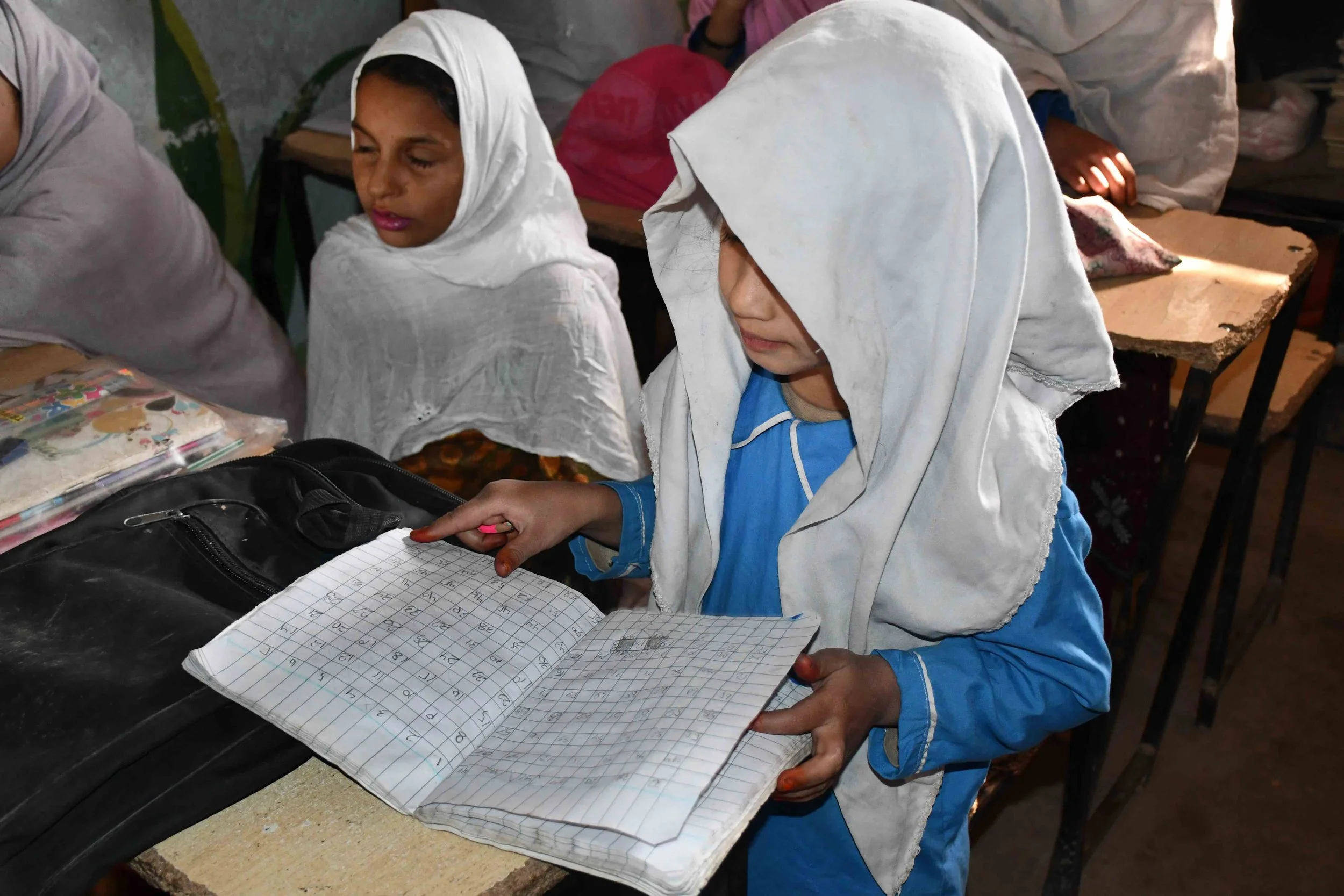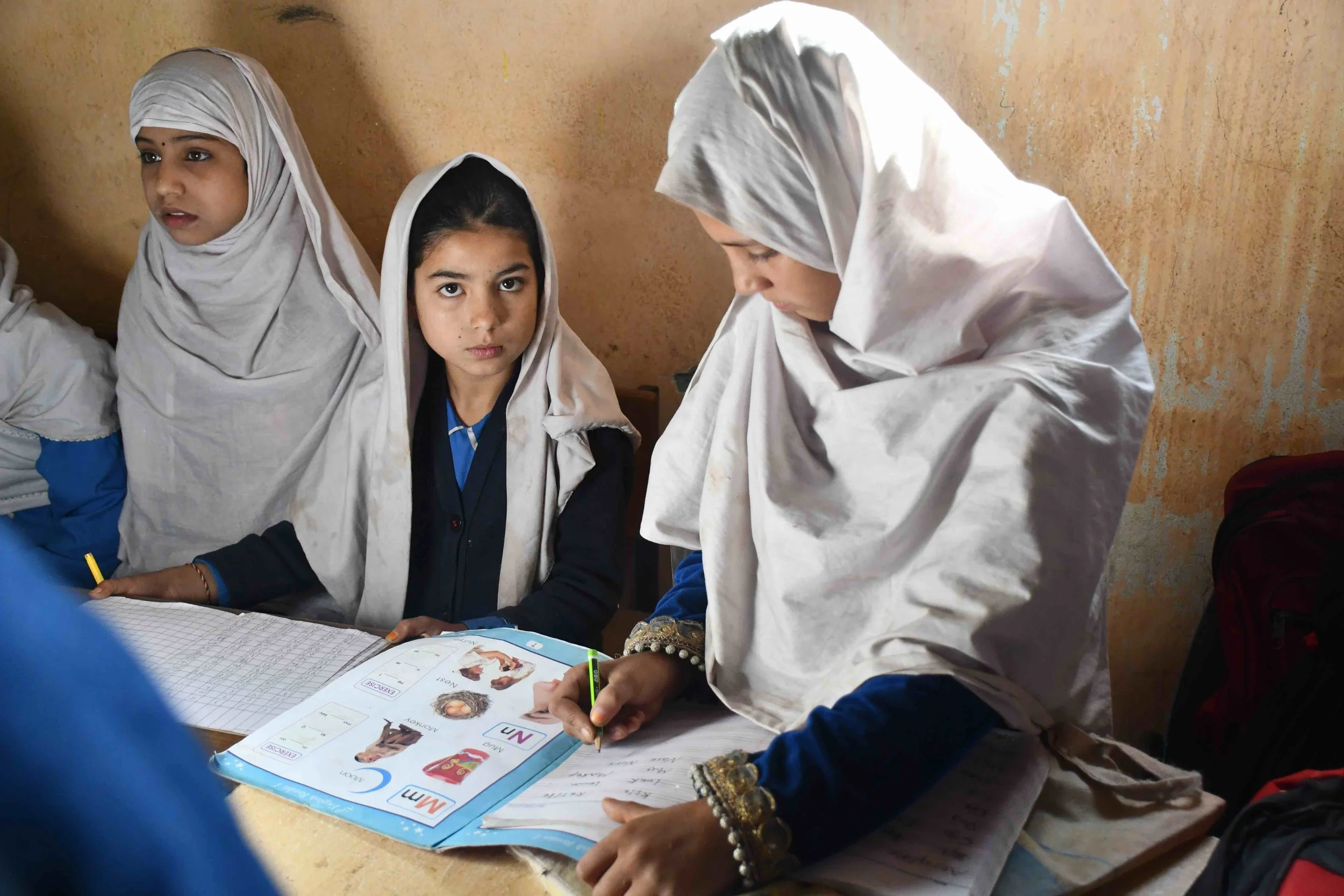How does foundational learning impact girls?
For girls in Pakistan, foundational learning can fundamentally improve their lives and their society.
Millions of girls in countries like Pakistan go to school, but many do not truly learn. Girls lack basic reading skills – according to ASER 2023 only about 47% of Grade 5 girls nationwide can read at least a sentence in Urdu or Sindhi. Without strong reading and math skills in early years they struggle to keep up, eventually drop out, and lose out on future opportunities. This blog explores what happens when girls’ foundational learning is weak and the powerful effects when it is strong.
If Foundational Learning Is Weak...
Girls drop out of school early because they fail to acquire basic literacy and numeracy and fall behind. Research from Senegal shows over 40% of parents cited poor early grades as the reason their daughters left school (RISE).
Girls miss out on formal jobs and steady income. Girls who lack foundational literacy and numeracy have a significantly lower chance of formal wage employment. Girls in Indonesia with weak foundational skills had 1.4 percentage points lower likelihood of formal employment (WWHGE).
The Risk of Domestic Violence increases. In Pakistan, women with no education had over 25% higher incidence of physical abuse than women with secondary or primary education (DHS 2017–18).
Girls are more likely to marry early, face health risks, and have undernourished children. In Gujranwala, Pakistan, mothers with low literacy levels were 8.8 times more likely to have stunted children ( Tahreem at al., 2025). Gaps in early learning also lead to low awareness of reproductive rights and higher maternal deaths in Pakistan. (BMC 2022)
On the other hand, if girls' foundational learning is strong...
Their school retention increases as girls with strong early math and reading skills are more likely to stay in school. In Ethiopia, India, and Pakistan, better scores at age 8 reduced dropout rates by 49% by age 12 (RISE Programme). In countries like Senegal and Kenya, girls’ early scores predict school persistence more than boys’ (WWHGE).
Girls access better jobs, earn independently, and face lower risk of domestic violence. In Indonesia, each unit increase in foundational skill raises girls' earnings by 7.3% and job chances by 1.4% (WWHGE). In China, girls with higher early skills were more likely to get formal jobs, register in cities, marry later, and delay childbearing (WWHGE). Each extra year of school also raises girls’ wages by 10–20%, more than boys (World Bank). Education also lowers the risk of violence and boosts decision-making power (UNICEF, UNESCO, DHS 2017–18).
Girls get better health & family outcomes. Evidence shows that a 1 percentage point increase in maternal literacy in Nepal reduced infant mortality by 0.2 percentage points and under-five mortality by 0.3 percentage points (WWHGE, 2024). Another study found each additional year of schooling reduced adult death rates by 2%, and was associated with higher childhood vaccination levels (Lancet).
Girls’ learning boosts the next generation. A 1 SD gain in maternal literacy equates to a 34% higher chance of a child being on track in literacy/numeracy (Ewerling et a., 2020). Educated mothers’ children study 72 mins more daily (LEAPS). After Pakistan’s 2005 quake, children of educated mothers had no learning loss (RISE). Each extra year of maternal education = +0.32 years in children’s schooling, more for girls (UNESCO).
Conclusion
Strong foundational learning opens doors for girls to access education, jobs, safety, and a brighter future. It changes not just their lives, but also the lives of their children and future generations. If we want real change, we must start by helping every girl learn the basics well and early.
Amna Zeb is a Teach for Pakistan Fellow and is conducting an internship with the Pakistan Foundational Learning Hub
Further reading
Breaking Barriers, Improving Futures: Challenges and Solutions for Girls’ Education in Pakistan by the World Bank, 2024
Why foundational learning matters for girls: what the evidence tells us WWHGE
Empowering Women through Education: A Study on Reducing Violence against Women in Lahore ResearchGate.
Foundational learning: The building blocks for quality learning throughout life UNESCO (2024


